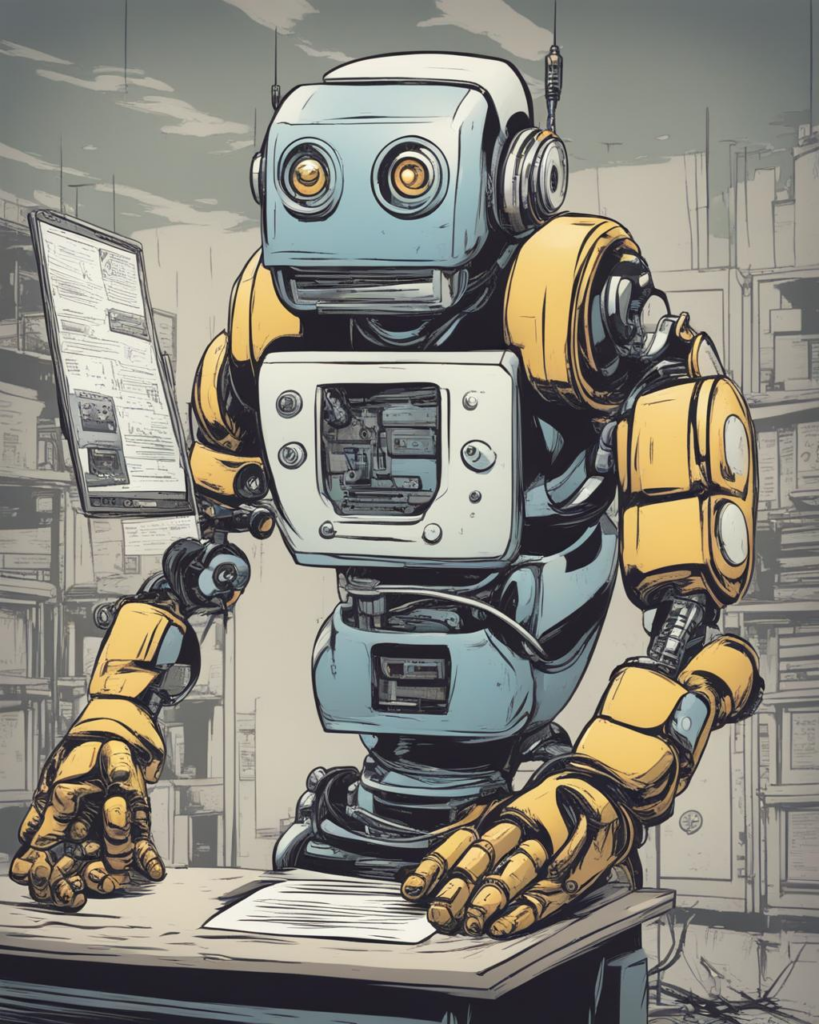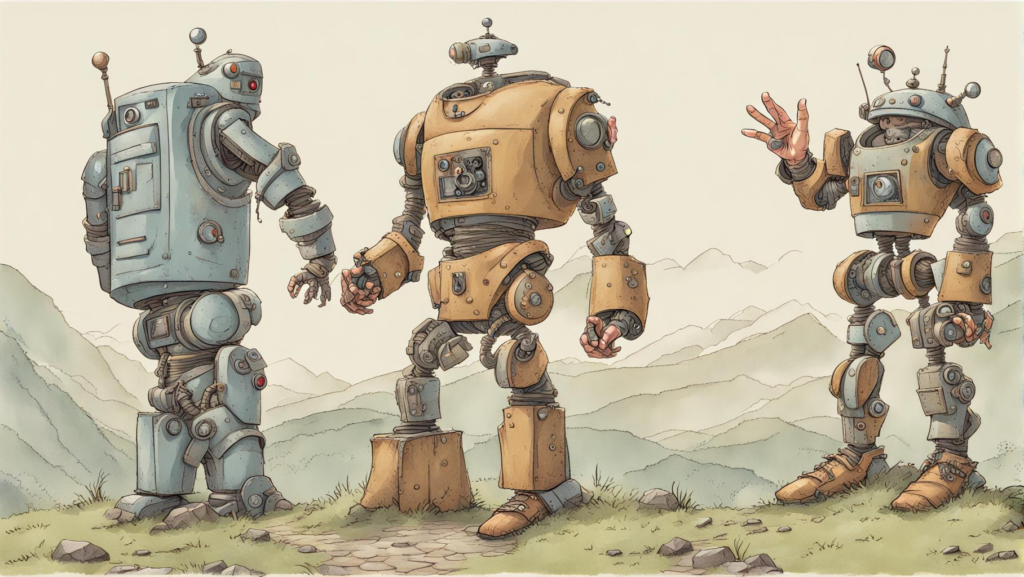Back to School, Version 2.0: How AI is Disrupting Education

This episode explores how schools are adapting to powerful new AI technologies like ChatGPT that can generate remarkably human-like text and content. We discuss plagiarism risks and integrity concerns, but also opportunities to enhance learning if these tools are integrated thoughtfully. Key takeaways:
– AI literacy is crucial as generative models become widespread
– Assessments should evaluate skills AI can’t easily replicate like analysis and communication
– Teachers play an indispensable role overseeing ethical usage and fostering metacognition
– With prudent design, AI can augment instruction and provide personalized guidance
– Curricula should balance generative AI with activities that build creative problem-solving abilities and knowledge depth
By upholding academic rigor and human engagement, schools can realize the promise of AI to make education more accessible, engaging, and adaptive. But human wisdom must steer its course so emerging technologies empower students rather than replace them.
This podcast was generated with the help of artificial intelligence. We do fact check with human eyes, but there might still be hallucinations in the output. The topic of the episode was inspired by an episode from the New York Times Podcast “Hard Fork” which I totally recommend – not just the episode, but the whole podcast!
Music credit: “Modern Situations by Unicorn Heads”
Start listening:
Or Listen On Your Favorite Network:
Don’t want to listen to the episode?
Here you can read it as an article!
Back to School in the Era of AI: Rethinking Education to Empower Students
Defining Generative AI and Its Educational Implications
The recent explosion of generative AI, typified by models like ChatGPT, DALL-E 2, and GitHub Copilot, represents a quantum leap in our artificial intelligence capabilities. Powered by a technique called large language models, these systems can generate amazingly human-like text, images, and code. So how exactly do they work? Large language models are trained on massive datasets of online text and conversations. They develop a statistical understanding of patterns in human language, allowing them to predict probable sequences of words and sentences. While these models don’t truly comprehend what they write, their outputs can seem startlingly coherent and articulate. For educators, the implications are profound. At the most basic level, generative AI supercharges students’ ability to produce passable assignments with minimal effort. A few prompts can yield complete essays, analytical answers, literature reviews, and more. This raises obvious integrity concerns regarding plagiarism and cheating.Transitioning to an AI-Ready Curriculum
Fulfilling education’s mission in the age of generative AI calls for rethinking curricula, assignments, and assessments. Here are some ways schools can evolve: – Place greater emphasis on in-class evaluations like essays, presentations, and projects where learning is demonstrated live. These provide ground-truth on abilities. – Design assignments that are inquiry-based, applying concepts to new contexts. This builds transferable knowledge and is harder to fake. – Train students to use AI responsibly as a launchpad for quality work, not a crutch. Teach self-monitoring to avoid overreliance. – Develop new literacy education in media, digital, and AI. Recognizing genuine vs synthetic content will be vital as creation tools advance. – Foster activities that machines can’t easily replicate, like complex problem solving, teamwork, and debating ideas. – Assess learning processes as well as outcomes. Portfolios showing iterations can reveal growth.Our Case Study Today: AI-Assisted Learning at Johnson High
To ground these concepts in a real-world example, let’s look at how one school, Johnson High, is thoughtfully integrating artificial intelligence into the student experience. Johnson serves a diverse population of 1400 students in a suburb of Columbus, Ohio. When ChatGPT exploded onto the scene last November, cheating concerns quickly mounted. But rather than an outright ban, Principal Reynolds convened a faculty task force to investigate prudent uses. They began by introducing ChatGPT selectively in classes like creative writing and computer science. Students used prompts to generate ideas and content under teacher supervision. This helped develop AI literacy and surfaced benefits versus limitations. Encouraged by these controlled tests, Johnson expanded pilots across other subjects. In history, students asked ChatGPT to summarize primary sources – then learned to discern inaccuracies. English teachers had AI write sample essay drafts for critiquing. It became a launch pad, not a complete solution.Looking Ahead in AI-Powered Education
In this episode, we’ve explored the dawn of a new era in education driven by breakthroughs in artificial intelligence. ChatGPT and generative models have confronted schools with both perils and possibilities. But by rethinking policies, curricula, and assessments, human teachers can harness AI as a valuable ally. The key is maintaining a judicious balance – embracing opportunities to enhance learning while designing experiences that build timeless skills and knowledge. With wisdom and oversight, we can develop AI literacy and self-direction in students. We can make instruction more personalized and accessible. And we can free up teachers to focus on the irreplaceable human elements of mentoring, inspiration, and coaching unique talents. Of course, realizing this future requires navigating trade-offs and potential pitfalls. We must continue examining questions of academic ethics, equitable access, and depth versus breadth of learning. And require transparency about how algorithms shape personalized experiences. But the present moment is ripe with potential. We are limited only by our imagination and collective will to shape technology for human benefit. AI does not diminish the value of engaged teachers and students. It augments them, providing superpowers to fulfill education’s highest aims.Want to explore how AI can transform your business or project?
As an AI consultancy, we’re here to help! Drop us an email at info@argo.berlin or visit our contact page to get in touch. We offer AI strategy, implementation, and educational services to help you stay ahead. Don’t wait to unlock the power of AI – let’s chat about how we can partner to create an intelligent future, together.



